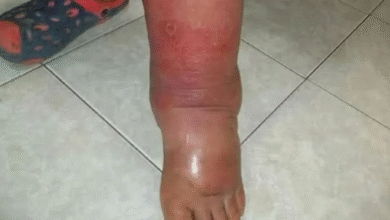Justice Delivered: Man Found Guilty

Wakefield, West Yorkshire, is known for its calm streets, familiar neighborhoods, and a sense of community where life moves at a steady rhythm. People know their neighbors, greet each other on the way to work, and watch the seasons change together. It’s a place where major headlines rarely originate, and when they do, they usually involve local events, school achievements, or community celebrations. But every so often, something happens that disrupts this sense of security, leaving a lasting mark on the people who live there.
One such moment came when a young father, 22-year-old Liam Deane, stood trial for his role in the death of his newborn daughter, Luna. She had lived for only two days. The news shocked residents and rippled far beyond Wakefield, becoming a national talking point and sparking difficult conversations about parenthood, mental health, and community responsibility.
A Shocking Loss That Shook the Community
For many in Wakefield, the news was hard to comprehend. Some had known Liam personally — as a schoolmate, a coworker, or simply a familiar face in the area. Others had never met him but still felt the weight of the tragedy as parents, grandparents, or siblings themselves. The idea that such a young life could be lost so suddenly and under such circumstances left many with more questions than answers.
Luna’s life had barely begun. Those who followed the case felt the heartbreak of knowing that her future — filled with potential milestones like her first smile, her first steps, and her first day at school — had been taken away before it could unfold.
Inside the Courtroom
The trial that followed revealed details that were difficult to hear. Prosecutors argued that a moment of uncontrolled anger led to Luna’s death, describing an incident that could have been avoided. The defense acknowledged the tragedy but pointed to the pressures of early parenthood, emotional strain, and the lack of a strong support network for young parents as contributing factors.
The judge’s role was not only to weigh the evidence and deliver justice but also to recognize the broader social context in which the tragedy occurred. While accountability was essential, the case highlighted a recurring theme: many young parents face overwhelming challenges, and without the right support, those challenges can spiral into crisis.
A Ripple Effect of Conversations
As the trial gained attention, conversations broke out across the city and beyond. Parents spoke openly about their struggles, young couples discussed the realities of raising a child, and social workers highlighted the urgent need for more accessible mental health and parenting support.
Some of the main themes that emerged included:
-
The Reality of Young Parenthood – Raising a child requires emotional maturity, patience, and the ability to cope with stress. For some young parents, the sudden shift in responsibility can be overwhelming.
-
The Importance of Support Systems – Families, friends, and community programs can provide guidance, emotional comfort, and practical help.
-
Recognizing Warning Signs – Stress, isolation, and frustration are common, but when they become unmanageable, intervention is crucial to prevent harm.
A Call for Change
In response to the case, advocacy groups, mental health professionals, and parenting organizations began to push for systemic changes. They called for:
-
Expanded Access to Parenting Classes – Giving new parents practical tools and coping strategies before and after a child’s birth.
-
Improved Mental Health Resources – Making it easier to access counseling without stigma or financial barriers.
-
Community Education Campaigns – Encouraging residents to look out for one another and step in if they see signs of distress.
Local councils began reviewing how they could strengthen outreach programs for at-risk families. Nonprofit organizations expanded hotlines and online resources, offering free guidance for parents in crisis.
The Emotional Toll on a Small City
In a city like Wakefield, where people often know each other by name, tragedies hit harder. Many residents said they couldn’t stop thinking about Luna’s mother, the family members left grieving, and the life that had been lost before it had truly begun.
Parents found themselves holding their own children closer at night, reflecting on how fragile life can be. For grandparents, the case stirred memories of caring for newborns and the vulnerability of those early days. For teenagers and young adults, it served as a sobering reminder of the responsibilities that come with starting a family.
Justice and Its Limits
When the court delivered its verdict, many felt a mix of emotions — relief that justice had been served, but sadness knowing that no ruling could bring Luna back. Liam Deane was held legally responsible, but the community recognized that prevention had to be the greater goal moving forward.
Justice can punish wrongdoing, but it cannot undo loss. In this case, the hope was that Luna’s story might lead to changes that could protect other children in the future.
The Broader Lessons
The trial also sparked national discussions about the challenges of early parenthood in modern society. Experts pointed out that:
-
Economic pressures make it harder for young parents to find stability.
-
Social isolation, especially in urban environments, can leave parents without emotional support.
-
Mental health struggles often go unnoticed until a crisis occurs.
The case was a reminder that while many parents rise to the challenge, some need help — and getting that help early can make the difference between a safe, loving home and a dangerous situation.
Remembering Luna
Although media coverage eventually faded, Luna’s memory continued to inspire change. Some residents organized memorial events, while others raised funds for charities dedicated to supporting vulnerable children. Social media posts honoring her life encouraged others to be more aware of the struggles parents might be facing behind closed doors.
For many, Luna became more than just a victim in a court case — she became a symbol of why communities must rally together to protect their most vulnerable members.
Moving Forward With Purpose
Wakefield, though still healing, has taken steps toward ensuring that such a tragedy never happens again. The lessons from Luna’s case have been woven into community discussions, parenting programs, and policy decisions.
Her story has become a touchstone for conversations about empathy, mental health, and shared responsibility. By keeping her memory alive, the city hopes to turn grief into meaningful action — action that may save lives in the future.
Final Reflections
Liam Deane’s case is not simply a story of crime and punishment. It is also a cautionary tale about the weight of parental responsibility, the impact of mental health on family life, and the critical role communities play in offering support.
Years from now, people may forget the specifics of the trial, but the lessons will remain. Luna’s short life is a reminder of how fragile life can be — and how important it is to create a world where children are nurtured, protected, and given every chance to thrive.
Justice has been served, but the deeper work continues: building systems, resources, and community networks that prevent tragedies before they happen. In that way, Luna’s story will continue to shape Wakefield and serve as a call to action for generations to come.




